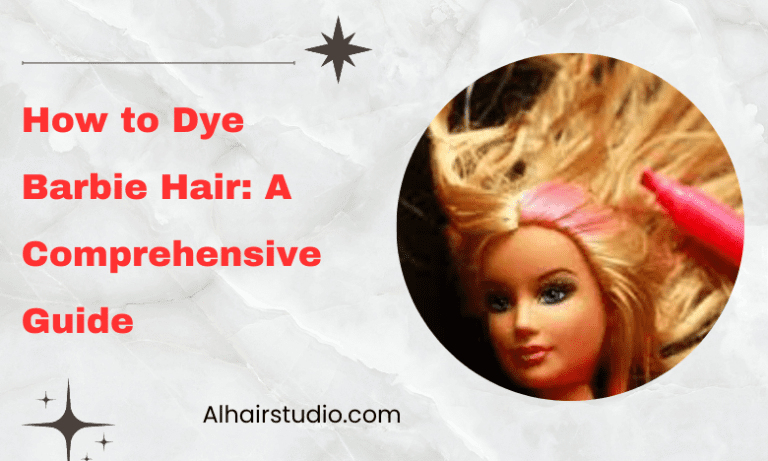How Much Does Hair Weigh? A Comprehensive Guide
If you’ve ever wondered about the weight of your hair, you’re not alone. Hair is an important part of our appearance and identity, and it’s only natural to be curious about its properties. In this article, we’ll explore the weight of hair, how it varies from person to person, and what factors can affect it.
Read also: How Long Does Castor Oil Last: A Comprehensive Guide
Introduction
Hair is a crucial part of our appearance and identity. It’s an extension of our personality and style, and we often spend time and money on styling and maintaining it. But have you ever thought about how much your hair actually weighs? The weight of hair may not seem like an important factor, but it can have implications for hair care and styling.
Read also: Does Balayage Damage Hair? Exploring the Truth Behind the Popular Hair Coloring Technique
What is hair made of?
Before diving into the weight of hair, it’s essential to understand its composition. Hair is made up of a protein called keratin, which is produced by hair follicles in the skin. The hair shaft, which is the visible part of the hair, comprises three layers: the medulla, cortex, and cuticle. The medulla is the innermost layer, followed by the cortex, and the cuticle is the outermost layer that protects the hair.
How much does hair weigh?
The weight of hair varies from person to person and depends on several factors such as hair length, thickness, and density. On average, a single strand of hair can weigh anywhere between 0.1 to 0.5 grams, depending on its thickness and length. However, it’s essential to note that the weight of hair can add up quickly, especially when you consider the number of hair strands on a human head.
Factors that affect the weight of hair
Several factors can impact the weight of hair, including genetics, age, and health. Genetics play a significant role in determining hair thickness, density, and texture, which can ultimately impact its weight. Age can also affect hair weight, as hair tends to become thinner and less dense as we age. Health can also impact hair weight, as certain medical conditions or nutritional deficiencies can lead to hair thinning or loss.

How to measure the weight of hair
Measuring the weight of hair can be a challenging task, as it involves weighing individual strands. However, there are several methods that researchers use to determine the weight of hair. One method involves cutting a small sample of hair and weighing it on a sensitive scale. Another method involves counting the number of hairs on a person’s head and estimating the total weight based on the average weight of a single hair strand.
The average weight of different hair types
The weight of hair can vary depending on the type of hair. On average, straight hair is the thinnest and weighs the least, while curly and wavy hair is thicker and heavier. Here’s a breakdown of the average weight of different hair types:
- Straight hair: 0.1 to 0.2 grams per strand
- Wavy hair: 0.15 to 0.3 grams per strand
- Curly hair: 0.2 to 0.5 grams per strand
How much hair is shed daily?
It’s normal to shed some hair every day, and on average, a person can lose anywhere between 50-100 strands of hair per day. However, this number can vary depending on factors such as age, genetics, and health. It’s essential to note that hair shedding is a natural part of the hair growth cycle and is necessary for healthy hair growth.
Does hair color affect its weight?
Hair color does not directly affect the weight of the hair. However, hair color can impact the thickness and texture of hair, which can ultimately affect its weight. For example, individuals with blonde hair tend to have finer hair strands, which can weigh less than individuals with thicker, coarser hair.

How does hair weight impact hair care?
The weight of hair can impact hair care in several ways. For example, individuals with thicker, heavier hair may need to use more shampoo and conditioner to properly clean and moisturize their hair. Additionally, the weight of hair can impact hairstyles, as heavier hair may be more difficult to style and may require more product to hold a particular hairstyle.
Related article: How Long to Leave Hair Dye In: The Ultimate Guide
How much hair can a hair tie hold?
The amount of hair a hair tie can hold depends on the thickness and weight of the hair. On average, a hair tie can comfortably hold up to 1 inch of hair, or approximately 30 to 40 strands of hair. However, individuals with thicker, heavier hair may need to use multiple hair ties or thicker hair ties to hold their hair in place.

How much hair do hair extensions weigh?
The weight of hair extensions can vary depending on the type of extensions and the length and thickness of the hair. On average, a single hair extension can weigh anywhere between 0.5 to 1 gram. However, it’s essential to note that the weight of hair extensions can add up quickly, especially when using multiple extensions.
Check this also: Can You Dye Greasy Hair?
Conclusion
Hair weight may not seem like a significant factor, but it can have implications for hair care and styling. The weight of hair can vary depending on several factors, including hair length, thickness, and density. Additionally, hair shedding is a natural part of the hair growth cycle, and it’s normal to lose some hair every day. Overall, understanding the weight of hair can help individuals make informed decisions about hair care and styling.
Read also: Does Hair Developer Expire? All You Need to Know





